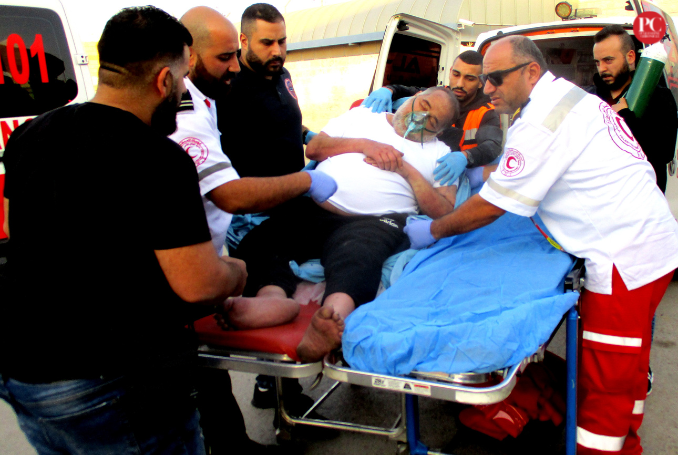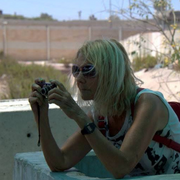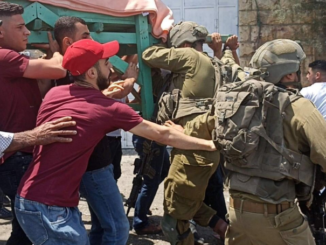
As I was standing at the Qalandiya military checkpoint, I saw an ambulance coming from the besieged Gaza Strip through the Erez Crossing.
It was parked at the spot designated for the ‘back-to-back’ procedure while waiting for its counterpart from the West Bank.
The driver told me that they were transporting “a very, very sick man”.
“He is going to Nablus for an open heart surgery,” the driver added.
But when the ambulance from Nablus arrived, Israeli soldiers did not hurry and they prioritized the ‘security’ procedures over the patient’s condition.
“If the patient has already been inspected when exiting Gaza, why is he subjected to the same inspections here?” I asked the supervising soldier.
“I don’t understand what you’re asking” was her answer.
I didn’t insist.
At the same time, another ambulance arrived from the West Bank. They, too, had to wait for another ambulance coming from Jerusalem.
Wassim, who works for the Red Crescent, told me that the patient needed his dialysis treatment urgently. But in his case, too, Israeli soldiers took their time inspecting him as he was carried on his stretcher from one ambulance to another. They checked the stretchers, the vehicles, and even the patient’s oxygen tank.
(Translated by Tal Haran. Edited by Romana Rubeo)

– As a member of Machsomwatch, Tamar Fleishman documents events at Israeli military checkpoints between Jerusalem and Ramallah. Her reports, photos and videos can be found on the organization’s website: www.machsomwatch.org. She is also a member of the ‘Coalition of Women for Peace’ and a volunteer in ‘Breaking the Silence’. Tamar Fleishman is The Palestine Chronicle correspondent at the Qalandiya checkpoint.







